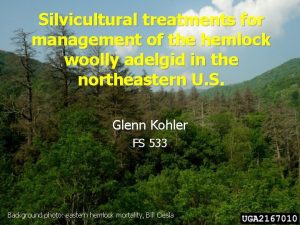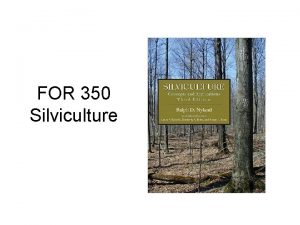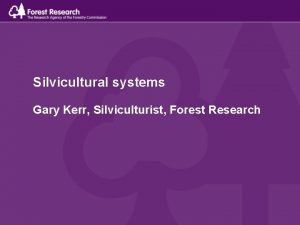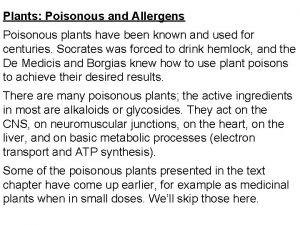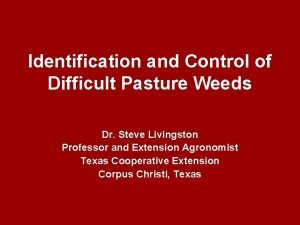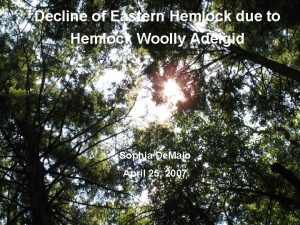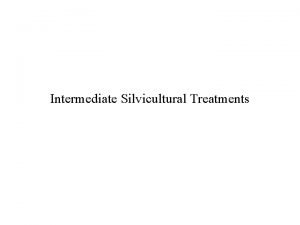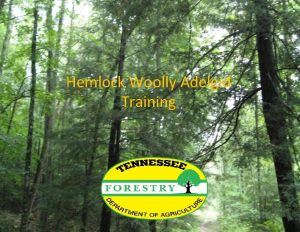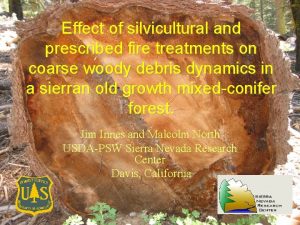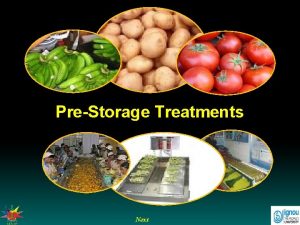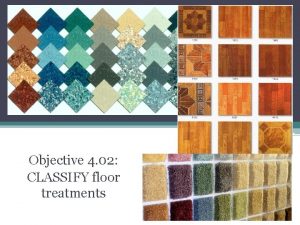Silvicultural treatments for management of the hemlock woolly











- Slides: 11

Silvicultural treatments for management of the hemlock woolly adelgid in the northeastern U. S. Glenn Kohler FS 533 Background photo: eastern hemlock mortality, Bill Ciesla

Hemlock woolly adelgid (HWA), an exotic pest, is causing widespread mortality to eastern hemlocks in the eastern U. S. Connecticut Agricultural Experiment Station

Following HWA caused mortality ► sites colonized by birches, oaks, and maples; resulting in a more homogenous hardwood dominated landscape William M. Ciesla, Forest Health Management International

► exotic plants may invade the site Anne Eschtruth, UC Berkeley

salvage logging? ► 3 silvicultural options following hemlock mortality § do nothing § cut 20 -50% dead hemlock § cut >50% dead hemlock Shaughnessy Forest Products, New Hampshire Haliburton Forest, Ontario, Canada

PURE HEMLOCK ZERO 20 -50 >50 HARDWOODS +CHANGED UNDERSTORY SNAGS = HABITAT HARDWOODS +CHANGED UNDERSTORY PLANTED REGEN. (ie PINE) CAN COMPETE WITH HARDWOODS +WEEDY SPECIES INVASIVES? EROSION? DAMAGE HEALTHY HEMLOCK SEEDLINGS?

► Salvage logging may cause more environmental damage than HWA alone. § increased nitrification, soil p. H, and nitrogen leaching ► Pre-emptive salvage is not recommended. § eliminates possible HWA tolerant seed source.

Rehabilitation planting ► Replacement conifers: § native pine, spruce, or fir ► Breeding Single tree/group selection in Red spruce (Picea rubens), Eastern Hemlock (Tsuga canadensis), Balsam fir (Abies balsamea) stand on the Penobscot Experimental Forest. Photo: Doug Maguire, Oregon State University § HWA resistant Chinese hemlock has been crossed to Carolina hemlock

► Hemlock regeneration site selection § Factors that increase tolerance to HWA: ►soil moisture ►low nitrogen ►cold temperatures Regeneration Photo: Chris Evans, University of Georgia

Regeneration cont. ► plant hemlock in small gaps (<100 m 2) to reduce competition from hardwoods. ► expose mineral soil if seeding hemlock. ► vegetation control is needed in open areas.

Take home ► surviving hemlocks can be regenerated on cold, wet, low N sites. ► group selection cutting, soil prep. , and weed control help natural hemlock regeneration. ► protect unique seed sources for the future! www. geocaching. com
